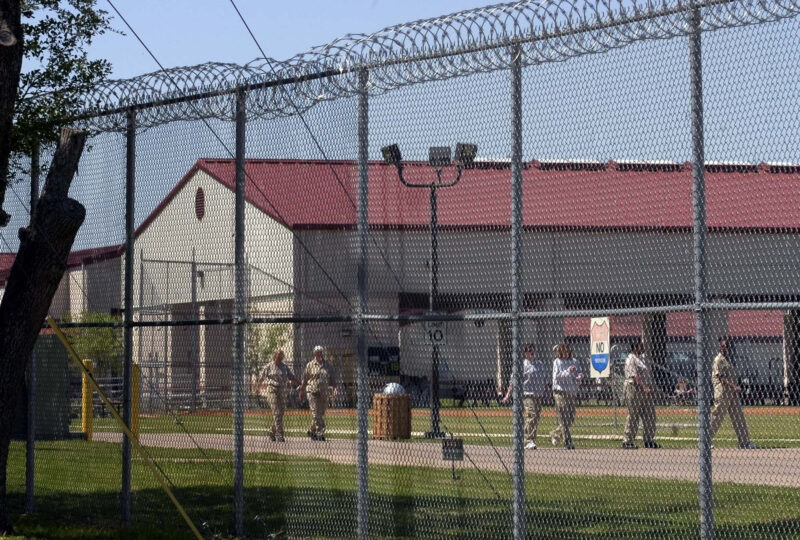The stark reality of life in a Federal Prison Camp often exists in a shadowy limbo between punishment and rehabilitation. These facilities, designed for lower-risk inmates, promise a more lenient environment.
Yet, beneath the surface lies a complex interplay of factors that profoundly affect mental health. For many inmates, the transition from the outside world — vibrant, chaotic, and full of potential — to a regimented life confined within concrete walls is jarring.
Isolation, loss of autonomy, and the ever-looming specter of stigma can precipitate a range of psychological challenges, from anxiety and depression to more severe mental health crises. As we delve into the intricate effects of these camps on individual well-being, it becomes essential to explore not just the conditions of confinement but also the multifaceted emotional landscape that emerges within those walls, shaping the lives of those who reside there.
Understanding Federal Prison Camps
Federal Prison Camps, often described as the least restrictive option within the federal correctional system, provide a unique environment for incarcerated individuals. Unlike their more secure counterparts, these camps typically lack high walls and bars, offering a semblance of normalcy that can influence inmates daily lives.
Life in a federal prison camp generally includes work assignments and minimal supervision, fostering a sense of autonomy that contrasts sharply with the more oppressive atmospheres found in maximum-security facilities. However, the seemingly benign structure of these camps masks significant challenges.
Inmates often grapple with the stigma associated with incarceration, isolation from their families, and the haunting uncertainty of life post-release. This juxtaposition of reduced physical constraints alongside emotional and psychological pressures creates a complex landscape that profoundly impacts mental health.
Understanding these dynamics is crucial as it sheds light on the multifaceted nature of confinement and its lasting effects on individuals navigating the federal prison system.

Mental Health Challenges in Incarceration
Incarceration presents a unique cauldron of mental health challenges that often exacerbate pre-existing conditions or give rise to new psychological issues. The stark reality of life in a federal prison camp—marked by isolation, limited autonomy, and an unpredictable environment—can lead to a deterioration of mental well-being.
Many inmates struggle with anxiety and depression, exacerbated by the weight of societal stigma and the challenges of reintegration post-release. Additionally, the lack of adequate mental health resources in many correctional facilities leaves individuals without proper support, making coping mechanisms scarce and often ineffective.
Whether it’s the stress of confinement, the looming uncertainty of the future, or the profound sense of loss—personal, familial, and occupational—these elements coalesce, creating a perfect storm that can trap individuals in a cycle of despair. By understanding these challenges, we can begin to address the profound impact incarceration has on mental health and explore pathways toward rehabilitation and recovery.
Impact of Environmental Factors
The environment within a federal prison camp significantly influences the mental health of its inhabitants, manifesting in various ways that can be complex and deeply unsettling. The stark physical surroundings—often characterized by gray walls, chain-link fences, and limited sunlight—create a mood of confinement and despair.
Furthermore, the communal living situation fosters a unique social dynamic, where isolation from the outside world blends with the close quarters of fellow inmates, resulting in a cacophony of interpersonal relationships fraught with tension and anxiety. The lack of privacy and constant surveillance can exacerbate feelings of vulnerability and paranoia, while structured routines may strip away individual agency.
Additionally, the attitudes of staff and the availability of mental health resources play pivotal roles; supportive interactions can offer a glimmer of hope, whereas neglect or hostility can plunge individuals deeper into psychological distress. Thus, the interplay of these environmental factors weaves a complex web, influencing inmates’ mental well-being in profound and often unforeseen ways.

Conclusion
In conclusion, the impact of federal prison camps on mental health is profound and multifaceted, affecting individuals in ways that extend far beyond their physical confinement. The stressful environment, lack of access to adequate mental health care, and social isolation contribute to a decline in psychological well-being for many inmates.
For instance, studies indicate that a black man entering the federal prison system often faces compounded challenges, including systemic racism and societal stigma, which can exacerbate mental health issues. To mitigate these effects, it is crucial to implement reforms that prioritize mental health support and create a more rehabilitative atmosphere within these facilities.
By acknowledging and addressing the unique struggles faced by inmates, we can foster better outcomes both during and after their time in federal prison camps, ultimately enhancing their reintegration into society.


